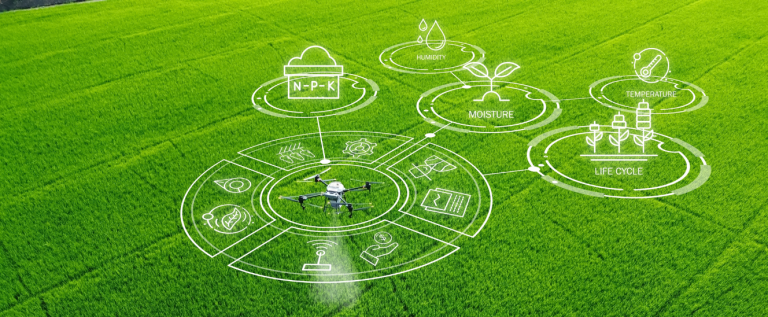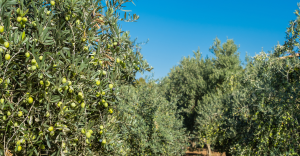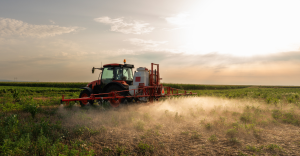With the advancement of agricultural technology, Brazilian agribusiness is undergoing a true revolution, focusing on a much more sustainable future.
More than just a strategic sector for the economy, agribusiness has become fertile ground for innovation and the development of solutions that combine productivity with environmental responsibility.
In a sector increasingly pressured to adopt practices that respect the planet’s limits, it is essential to implement core principles to ensure a more efficient, ethical, and competitive future for agriculture.
This transformation is driven by the need to produce more with minimal impact, responding to the growing global demand for food, fiber, and energy.
By adopting disruptive technologies and environmentally responsible production practices, agribusiness is shaping a new paradigm: a more connected, resilient, and future-ready sector.
Disruptive Technologies: Pillars of Agribusiness Transformation
Have you heard of the term “disruptive technologies”?
These are innovations that radically transform markets and business models, replacing conventional practices with more efficient and accessible solutions.
Examples include:
- Netflix transforming the video rental market;
- Uber creating a new way to use transportation;
- Artificial Intelligence changing countless products and processes worldwide.
In agriculture, these technologies are revolutionizing food production while reducing environmental impacts, saving resources, and increasing productivity through smart solutions.
Here are some disruptive technologies transforming agribusiness:
Precision Agriculture
One of the most prominent expressions of modern agricultural technology, precision agriculture uses hyperspectral sensors, drones, satellites, and artificial intelligence to:
– Map soil conditions;
– Monitor plant health;
– Enable real-time, site-specific crop management, and more.
The result is an extreme optimization in the use of inputs such as water, fertilizers, and pesticides, along with early detection of pests, diseases, and nutrient deficiencies.
This approach enables faster, safer, and more sustainable decision-making, increasing crop resilience and reducing waste.
Cutting-Edge Biotechnology
Agricultural biotechnology is rapidly advancing through gene editing and the development of organisms adapted to diverse climate scenarios.
Genetically modified or edited seeds allow for the cultivation of plants more resistant to drought, pests, and diseases—while being more nutritious.
At the same time, biological solutions for pest control and plant nutrition are emerging, reducing reliance on synthetic chemical inputs.
This approach promotes more balanced, sustainable agriculture aligned with agroecological principles.
Automation and Robotics
Smart machines and robots are already a reality on many farms.
From planting and selective harvesting robots to autonomous systems for environmental monitoring and individualized animal management, automation is redefining farming processes.
These technologies help to:
– Improve operational efficiency;
– Reduce natural resource usage;
– Save time;
– Lower labor dependency in critical areas, especially in regions lacking specialized workers.
Connectivity and Big Data
Field connectivity—enabled by 4G, 5G networks, and satellites—is the backbone of digital agriculture, allowing the integration of machines, sensors, weather data, and management systems into smart platforms.
These platforms let farmers access real-time information to forecast harvests, plan operations, optimize logistics, and ensure product traceability.
Big Data and analytics also enable simulations and predictive analysis, resulting in more strategic farming with reduced error margins.
Challenges and Opportunities in the Transition to Sustainable Agriculture
Despite recent advances, the shift to more technological and sustainable agriculture still faces key challenges:
- High initial costs: Acquiring advanced equipment, software, and technologies can be difficult for small and medium producers. However, many companies are now developing affordable high-tech solutions for this audience;
- Lack of infrastructure: Many rural regions still suffer from poor connectivity, limiting access to digital solutions and real-time data;
- Need for training: Efficient use of new technologies requires ongoing education and training for both producers and farm workers;
- Resistance to change: With deeply rooted traditions and fear of the unknown, many farmers still struggle to adopt sustainable and tech-based practices.
Despite these hurdles, many opportunities arise and deserve attention:
- The growing demand for sustainable food opens doors to the appreciation of products with certifications and traceability;
- The rise of the green economy is creating new markets and business models, including carbon credits and bio-inputs;
- Public policies and government incentives—such as special credit lines, innovation support programs, and R&D investments—can greatly accelerate this transformation;
- Partnerships between universities, startups, and agribusiness companies are fostering a robust innovation ecosystem capable of delivering technology tailored to the Brazilian context.
The Future of Agribusiness: More Technological and Sustainable
Current trends and projections indicate that the future of agribusiness will inevitably be more technological and sustainable.
This is because the convergence of agricultural technology, biotechnology, automation, and data intelligence is redefining production standards in the field.
At the same time, sustainable practices—such as rational resource use, biodiversity preservation, and clean value chains—are becoming essential to maintaining competitiveness and credibility in the sector.
In other words, sustainable agriculture is not a trend or a vision for the distant future—it is an urgent necessity and a strategic opportunity.
Producers, researchers, and entrepreneurs who seize this moment will help shape the future, driving growth, innovation, and leadership in agribusiness.





